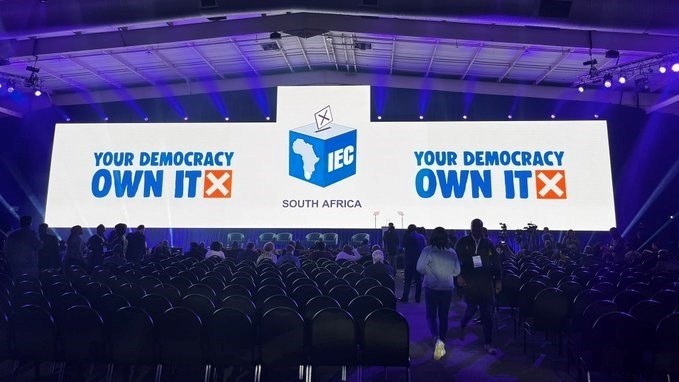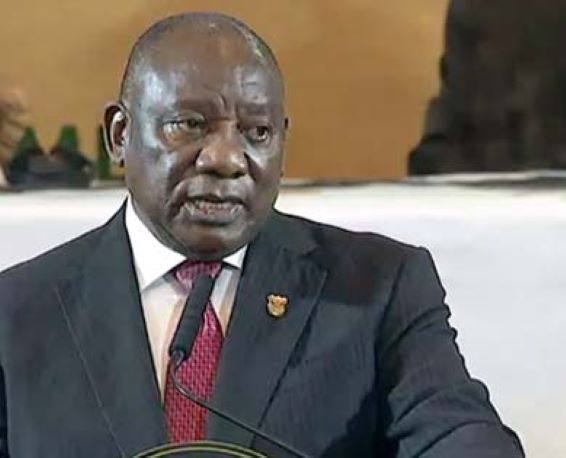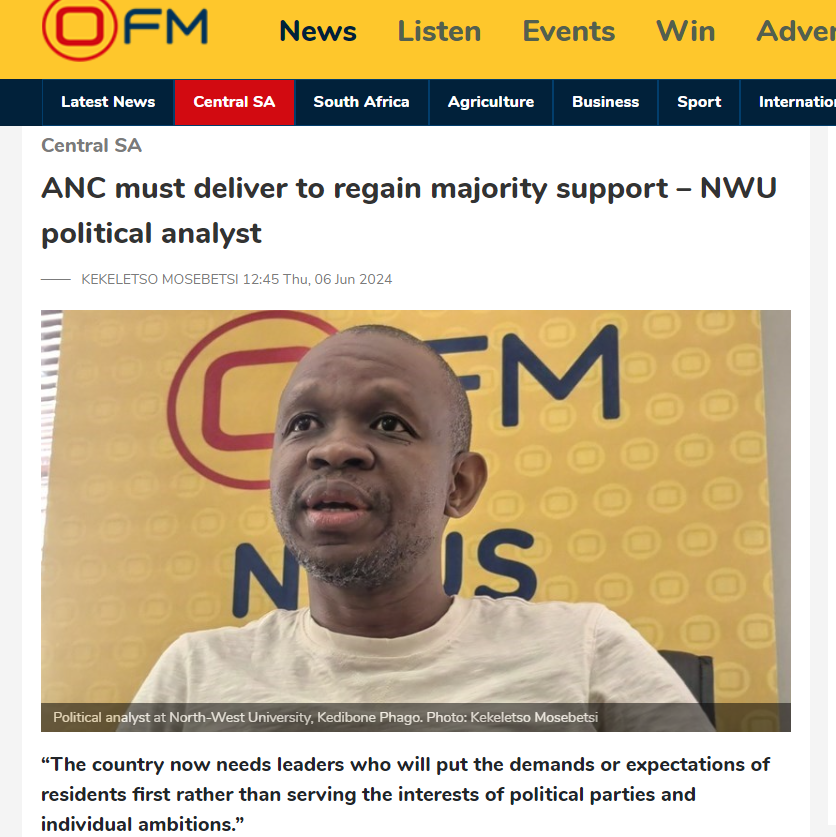Central SA
South Africans anxiously await GNU decision as ANC seeks stability─── KEKELETSO MOSEBETSI 07:51 Fri, 07 Jun 2024

“In my view, the ANC finds itself in a catch-22 situation.”
As South Africans wait anxiously for clarity on the future of their governance, the ANC faces the monumental task of forming a government of national unity (GNU).
The party suffered a significant loss of support in last week’s elections, where the ANC secured only 40% of the vote, a sharp decline reflecting public dissatisfaction with high unemployment, crime, poverty, power outages, and water shedding.
The election results have thrust coalition talks into the spotlight since Wednesday (29 May), highlighting the electorate’s desire for change and accountability. Despite losing an outright majority, the ANC retains the crucial role of deciding which parties to ally with in the national parliament.
Following a crucial special NEC meeting held at Birchwood Hotel in Boksburg to come up with solutions to the new government on Thursday (6/6), President Cyril Ramaphosa, emphasised the party’s commitment to stability.

President Cyril Ramaphosa. Photo: gov.za
“We invite political parties to form a government of national unity as the best option to move our country forward.”
The concept of a GNU is not new to South Africa. Such a government was established in 1994 when Nelson Mandela became the first democratic president. This collaborative governance was born from the multiparty negotiations facilitated by the Convention for a Democratic South Africa (CODESA) in Kempton Park, aiming to heal the nation's apartheid-era wounds.
However, NWU political analyst Prof. Kedibone Phago pointed out today’s scenario is different as ANC’s current push for a GNU stems from its electoral losses rather than a unified national reconciliation effort.
‘ANC finds itself in a catch-22 situation’
“In my view, the ANC finds itself in a catch-22 situation. If they go solely with the DA, many within the ANC who are more to the left will not be happy because of the ideological differences. But also if they go with parties to the right, such as MK, PAC, EFF, that will in a way isolate DA and DA might gain more support in the next elections.”
Meanwhile, parties such as EFF have publicly set stringent conditions for any cooperation, including key positions such as the Deputy Presidency for EFF president Julius Malema or the Finance Ministry for the party’s deputy president, Floyd Shivambu.
The EFF also advocates for radical policies like land redistribution and the nationalisation of the central bank. The MK Party, on the other hand, has demanded the removal of President Ramaphosa from leadership.
‘Urging all parties to prioritise the citizens' welfare’
Phago called for a focus on national interests over personal agendas, urging all parties to prioritise the citizens' welfare. He highlighted the intricate dynamics between the ANC and the MK party, suggesting personal interests, particularly those concerning former president Jacob Zuma, play a significant role in their strained relationship.
The ANC remains the largest party currently with 159 seats, 42 short of an outright majority in the 400-seat National Assembly after winning 40% of the votes in South Africa's seventh democratic general election.















